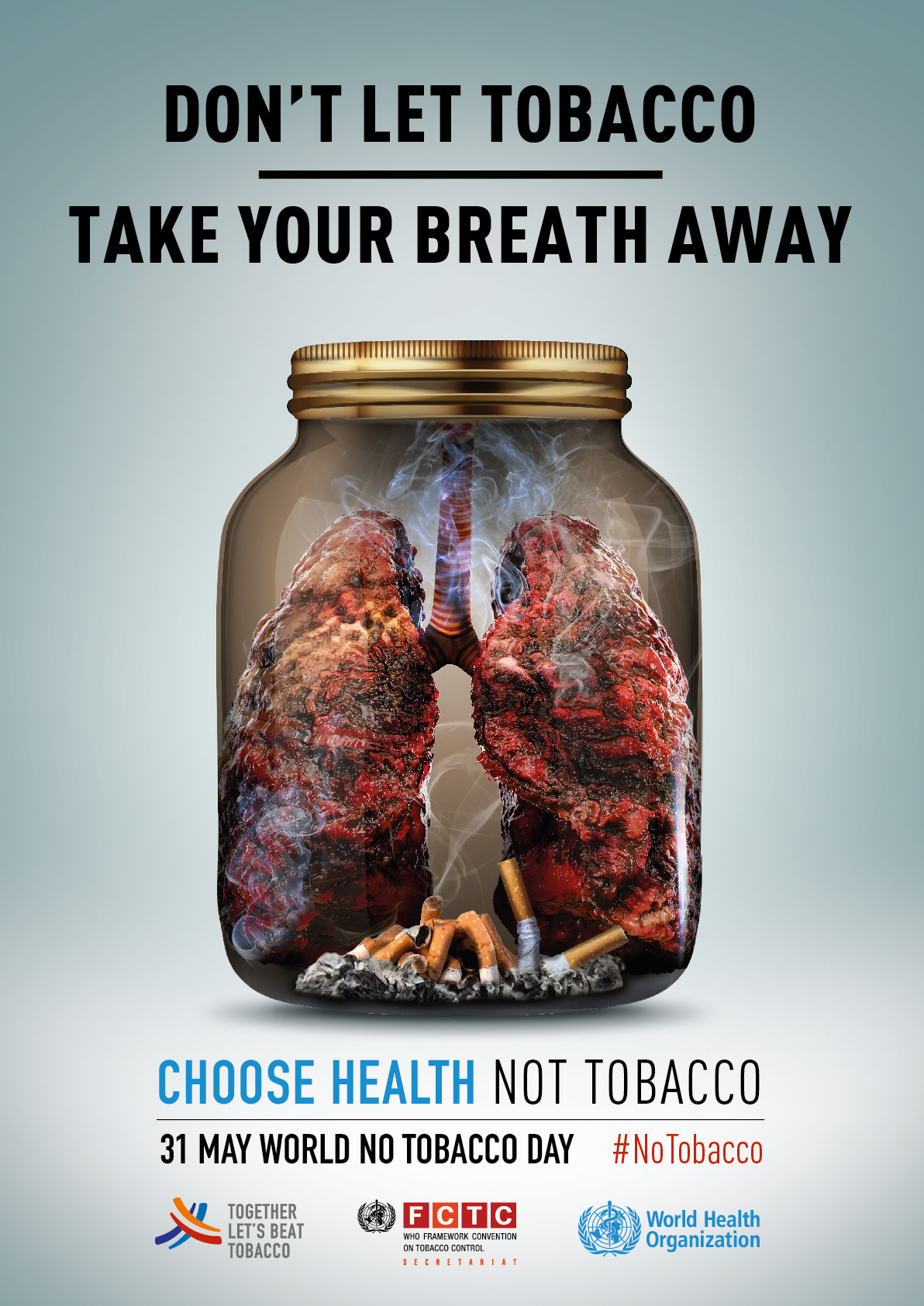World No Tobacco Day 2019 - Message of Dr Sarah Barber, Director of the WHO Centre for Health Development (WHO Kobe Centre)

On 31 May each year, the World Health Organization and its partners celebrate World No Tobacco Day to raise awareness that tobacco use and exposure to second-hand smoke are harmful, deadly, but completely preventable causes of death and disease. This year focuses on the threat of tobacco on lung health for everyone – not just smokers.
Tobacco smoking is the most common cause of lung cancer, resulting in about 1.2 million lung cancer deaths globally every year. Smokers are 22 times more likely to develop lung cancer than non-smokers, and twice as likely to develop TB. More than 20% of new TB cases around the world may be attributable to tobacco.
Tobacco smoke contributes to indoor air pollution. Smoke from the burning end of a cigarette, as well as exhaled smoke, is known as second-hand smoke. Non-smokers who breathe in this smoke risk getting lung cancer, chronic obstructive pulmonary disease, tuberculosis and asthma. Smokers’ children suffer reduced lung function which can affect them in adulthood through chronic respiratory disorders.
Just a single breath of tobacco smoke is enough to start damaging the lungs. Inhaling tobacco smoke paralyses the structures in the airways that clear mucus and dirt, allowing toxins in the smoke to enter the lungs more easily. In Japan, where around 18% of the population smoke, around 15 000 people are killed every year from second-hand smoke.
But it is never too late to quit smoking. Lung function improves within just two weeks of quitting tobacco use.
Japan recently tightened up its indoor smoking regulations. From July 2019, smoking will be banned indoors in schools, hospitals, government and children’s facilities. Several municipalities such as Tokyo, Chiba City, Shizuoka Prefecture and Hokkaido are implementing tougher smoke-free measures to protect their citizens. Increasingly, businesses are choosing to promote health and not tobacco by banning smoking in their workplaces and helping workers to quit smoking.
These are important steps towards protecting people from harmful second-hand smoke – but they do not go far enough. Around 55% of smaller bars and restaurants in Japan are exempt because of their size. This means that customers, families and workers will still be exposed to tobacco smoke. Designated smoking rooms, which are ineffective in protecting people from second-hand smoke, will still be allowed in public spaces such as workplaces, hotels and trains.
Japan is one of the fastest growing markets for e-cigarettes and heated tobacco products (HTPs). WHO recommends that HTPs should be regulated in the same manner as other tobacco products, and that bystanders be protected from exposure to second-hand emissions from HTPs and e-cigarettes.
Japan will soon be showcasing its culture and hospitality at the 2019 Rugby World Cup. Many of the nations playing have introduced indoor smoke-free laws which have been good for health and good for business. Research has found that indoor smoking bans have either a positive or no effect on business in bars and restaurants.
Japan has proven itself to be a global leader, particularly in its progress towards universal health coverage to ensure that all its citizens can access quality health care. The 2019 Rugby World Cup and the 2020 Olympics are golden opportunities for Japan to expand and accelerate its tobacco-free laws. Implementing and enforcing the most effective tobacco control policies and laws is critical for lung health of all people - not just smokers.

